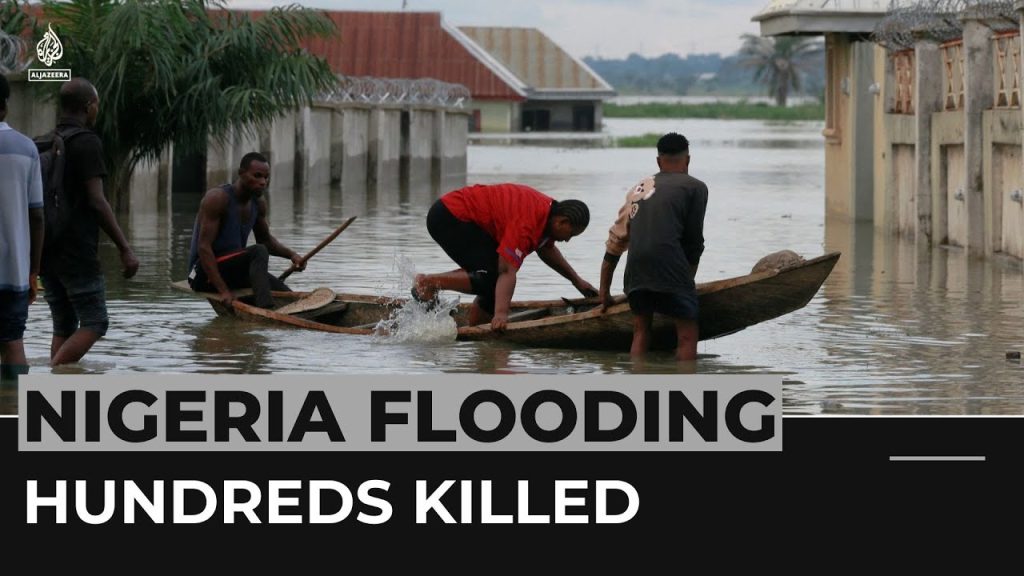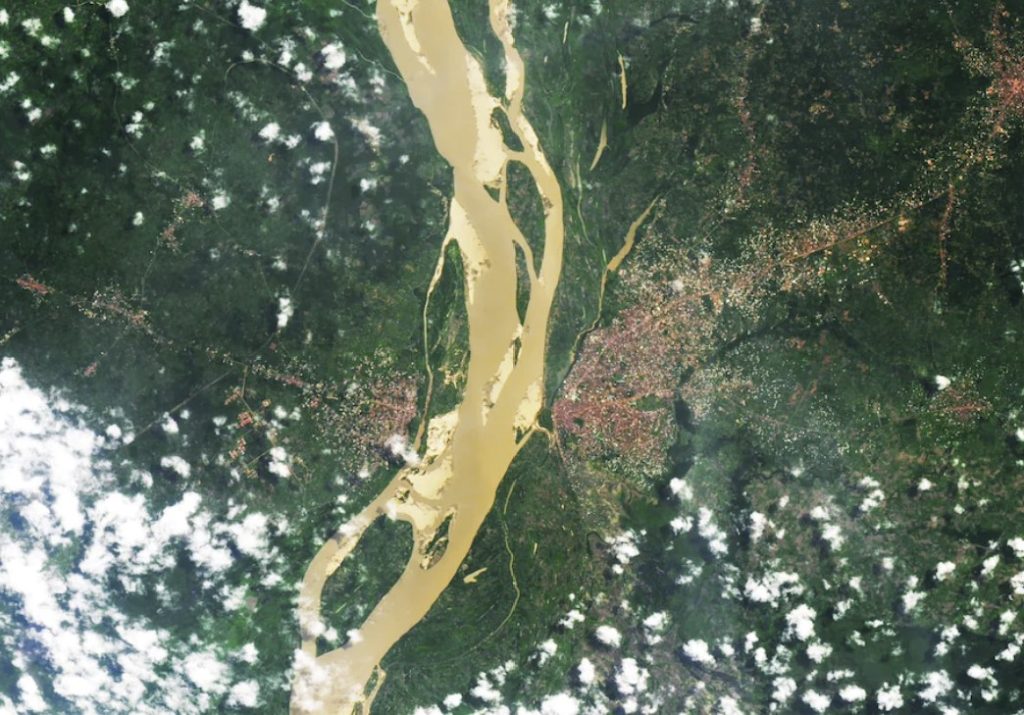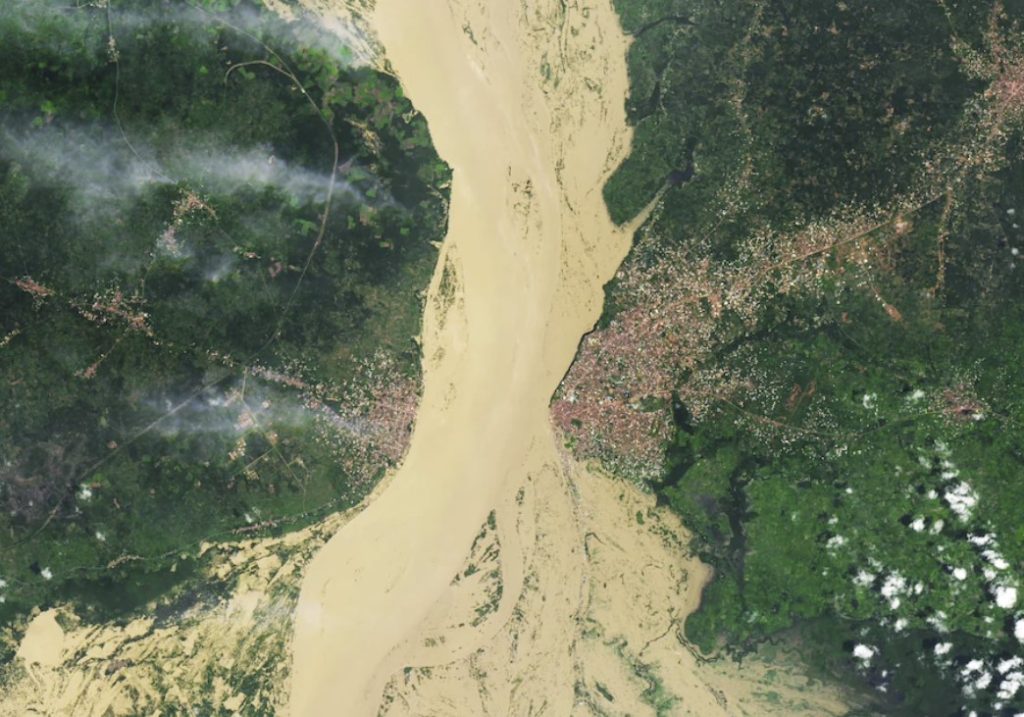
Widespread flooding caused by extreme rainfall and the release of excess water from a dam in neighboring Cameroon has left 1.4 million Nigerians displaced and claimed at least 600 lives, according to government officials.
The floods also injured 1,546 people, inundated 70,566 hectares of farmland and “totally damaged” 45,249 homes, said Nasir Sani-Gwarzo, the permanent secretary in Nigeria’s Ministry of Humanitarian Affairs, Disaster Management and Social Development.
Prepare now! Protect your home and cars againts EMP, solar flare and lightnings…
Flooding has affected 27 of Nigeria’s 36 states, officials said.
Satellite imagery from Landsat 9 showed major swelling of the Niger and Benue rivers in southern Nigeria, where, according to the U.S. space agency NASA, floodwaters “inundated numerous communities.” Where the rivers converged, the imagery revealed floodwaters overwhelming Lokoja, the capital of Kogi state.
Prepare now! You will never go without electricity with this portable power station!
“Flooding continued to the south, including a noticeably widespread area spanning southern Kogi and the northern part of Anambra state,” NASA reported.


Last week, 76 people drowned in Anambra when their boat capsized as they tried to escape high floodwaters, according to multiple news organizations. Floodwater had risen as high as rooftops in Kogi and Anambra, CNN reported. More than 600,000 people in Anambra have been displaced by flooding.
Prepare now! Stock up on prep food while supporting alternative medias with Mike Adams’ Health Ranger Store…
“It’s saddening. All of a sudden, people are left with no homes and turned to beggars in weeks. No matter how rich they were, the displacement has reduced them so much,” explained Chiamaka Ibeanu, a registered nurse who lives in Onitsha in Anambra state.
Ibeanu’s immediate family lives in Ossomari and Atani, nearby areas of Anambra close to the Niger River. She received word that her aunt and uncle had been displaced when their home was submerged.
“The items she [her aunt] couldn’t pack are in water … and she doesn’t have any other home,” Ibeanu said. “If not for the accommodation at the Primary Healthcare Center, she would have been stranded.”
Since the beginning of Nigeria’s rainy season, which lasts from April to October, the Nigerian Meteorological Agency (NiMet) and the Nigerian Hydrological Services Agency (NIHSA), said that flooding was imminent and that parts of the country would experience heavier rainfall compounded by water flowing from Lagdo Dam in Cameroon. The agencies predicted that the volume of water across Nigeria would increase.
“Communities must recognize that all disasters are local and they must take climate predictions and flood outlook warnings seriously,” said Alhaji Ali Grema, Nigeria’s director of humanitarian affairs.
Prepare now! Stock up on Iodine tablets for the next nuclear disaster…
Sani-Gwarzo, the government permanent secretary, said the scale of this year’s flooding is similar to the last major flooding Nigeria experienced, in 2012, which displaced 1.3 million people and claimed the lives of 431. In 2012, 30 of the 36 states were affected.
“The scale of devastation can only be compared to the 2012 floods,” said Sadiya Umar, the minister of humanitarian affairs, in a statement.
The submergence of farmlands has sparked fears of increased food insecurity and higher prices.
“Their farmlands are covered in the flood. This means that what was planted is swept away, and there might be food scarcity next year,” Ibeanu said.
The humanitarian affairs ministry said the federal government has committed to providing relief to all communities.
“We are taking all the necessary actions to bring relief to the people affected by the flood. All relevant agencies have renewed their commitment to strengthen their efforts in reaching out to the victims and bringing relief to them,” Sani-Gwarzo said.
On Friday, the humanitarian affairs ministry announced that the Nigerian government had begun to distribute 12,000 metric tons of food and nonfood items to states devastated by the flooding. [TWP]













Communities must recognize that all disasters are local and they must take climate predictions and flood outlook warnings seriously.
—Almost climate alarmist jargon. Certainly no drought in sight. I recommend houses on stilts or houseboats for the next deluge.
At least they have plenty of water to ply their nigerian “phishing” skills.
LOL!
Right! This is weather war… This is geoengineering!
Drought and Deluge. Worldwide. Certainly, no point in flooding these poor folks if they had such technology. Which they don’t.
Bingo!